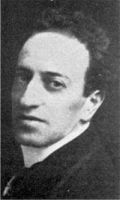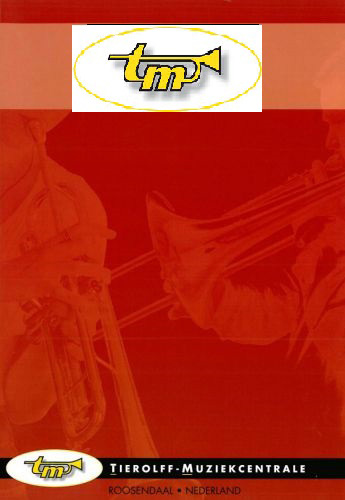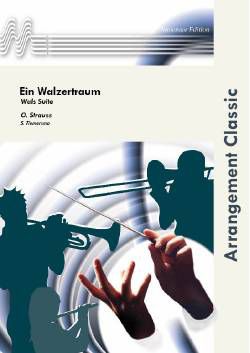Oscar STRAUSS

Oscar Straus (* March 6, 1870, Vienna - 11 January 1954, Bad Ischl, Austria) was an Austrian composer. Not wishing to be confused with members of the famous Strauss family of Vienna, he had himself decided to remove an s to his name. However, he followed the advice of Johann Strauss son in 1898 who advised him to abandon writing waltzes and devote himself to theater, considered more lucrative. Oscar Straus, the waltz will know no borders, no longer life. He will stay wherever it shines, in Vienna, Berlin, Paris or Hollywood and will be song, operetta, film or simply waltz. If it is a wonderful ambassador to the Viennese spirit, he also has this as a musician in the world that fully justifies the reputation of its choruses. He was born in Vienna on 6 March 1870 in a wealthy. He began composing at the age of eleven or twelve years, motivated by attendance at theaters where he accompanied his family. Of these the tidy room of the An-der-Wien, where he will be so often represented. Turbulent, runaway, but surprisingly gifted, he spent three years studying with Hermann Gardener. At twenty, he went to Paris, but do not work with Leo Delibes, which terminates upon the arrival of the young man in the capital. He then decided to settle in Berlin, and became a pupil of Max Bruch. Became a conductor, he toured Germany, stops some time in Hamburg where he was Mahler's assistant before returning to settle in Berlin. Dilettantism, but also ripening, characterize this period of training; Straus encounter all that matters in the musical life of that time: composers like Schoenberg or Leo Fall, librettists in vogue among them, later, he will choose the famous Rideamus loan to entrust him with song texts, which will provide the first operetta librettos. Attracted by the boards, it creates a cabaret, where Überbrettl himself on piano, Bozena Bradzky as a performer, pose a public complicit in their frenzied verve. He then returned to Vienna and began writing operettas, becoming a serious contender for Franz Lehár. At the premiere of The Merry Widow latter, Straus would have said "Das kann ich auch! "(I can do it too!). On the mind of the operetta, Straus is much less hesitant, why not revive the tradition of Offenbach? Rideamus it provides a booklet and the deal is done, but the parody of Germanic mythology, which is the subject of Die Nibelungen lustigen (The Merry Nibelungs) is not a pleasant little too seriously the public's Carltheater. The following books are better received, but it is not yet successful. Yet it is not long in coming. March 2, 1907 - Straus 37 years - Vienna applauds Ein Walzertraum (Waltz Dream, premiered in Paris at the Apollo in 1910): his prodigious career begins. The following year, a controversy is established with George Bernard Shaw which adapts Straus, in his way, The Arms and the Man, but it will not prevent Tapfere Der Soldat (The Valiant Soldier, which will become The Chocolate Soldier) of make its way from Vienna to Broadway, via France and England where the famous comedian disavow the book, the main issues will be taken in 1941 for a film of Metro-Goldwyn-Mayer. A large number of works will succeed until the start of Straus to Berlin in 1919. Yet we note a comic opera, given in Berlin and in Vienna Opera Populaire in 1909, Das Tal der Liebe (The Valley of Love), and a variety of lighter works whose titles alone reflect fairly with the registry: Mein Herr junger (My young gentleman) and Die Kleine Freundin (The Girlfriend) in 1910. Rund um die Liebe (Love Around), Die Schöne Unbekannte (The Beautiful Unknown) in 1915, Liebesräuber (House of Love) in 1916, Nachtfolter (The Moth) in 1917, Die Markgräfin Galante (Galante Countess) and Dorfmusikanten Die (The Musician's Village) in 1919. The climate has changed in Vienna, yet there still exists the waltz, probably in memory of the time it is back nostalgically. In Berlin, Straus looks forward to renewing. He is unable to do exactly, even if its new works incorporate a more serious component and demonstrate the amazing ability to exploit resources increasingly diverse. He gives and in 1920 at the Berliner Theater Der Letzte Walzer (The Last Waltz) with one of his favorite performers, Fritzi Massary. Will follow in 1923 Die Perlen der Cleopatra (Cleopatra's Pearls) with Richard Tauber, the future creator of the Land of Smiles in 1925 and the excellent Die Riquette Teresina (Teresina La) given shortly after its creation Berlin, Lyon and the world. Oscar Straus then returned to Paris. He composed specially for the Theatre Edouard VII, Mariette, given in 1928 with Yvonne Printemps and Sacha Guitry. But feels he wants to become too Parisian and he again did not yield to the routines to be attracted to the American experience as announced by the blues already contained his Die Koningen played a few months earlier in Berlin? Anyway, this is nothing more than in Hollywood, he decided to establish. Upon arrival, he reworks Mariette for the screen and starts the film music, showing the appearance of his protean genius. Married in Hollywood and One Hour With You Lubitsch with Maurice Chevalier and Jeanette MacDonald undeniably mark the transition from talented Straus by Sunset Boulevard. The scene draws him again and he returned to Berlin. Fritzi Massary gets another success in Eine Frau, die weiß, WAS sie will (A woman who knows what she wants) in 1932. Yet Oscar Straus, as a Jew, can not remain in Berlin without being persecuted. He left the city from its beginnings and moved to Vienna, then in Zurich. It is in the latter city he represented for the first time Drei Walzer (The Three Waltzes) that will triumph in Paris with Yvonne Printemps and Pierre Fresnay in 1937. In 1939, following the Anschluss, he stayed in France where it starts, once again, for the U.S.. Film music occupies it again and it's a French film, The Round, which is extracted from one of the most famous passages of the composer. It is also the United States he learned of the death of his wife, his son and his daughter-in occurred after the deportation of his family. After the war, in 1948, Oscar Straus returned to Austria in 1950, it was still represent lhr erste Walzer. It is January 11, 1954 he died at Bad Ischl. Six years earlier Franz Lehár died in that city. Google machine translation: Oscar STRAUSS's original bio |
 |
| ||
| Oscar STRAUSS Publisher : Tierolff Genre : Orchestra Group : Wind band |
Set Wind Band (TIR151295-BA) : € 51,78 Full score (TIR151295-CO) : € 19,27 |
||
 |
| ||
| Oscar STRAUSS Arr : SAKE TIEMERSMA Publisher : Molenaar Genre : Orchestra Group : Wind band |
Set Wind Band (MOL010313050-BA) : € 101,28 | ||
 |
| ||
| Oscar STRAUSS Arr : LEONARD B. SMITH Publisher : BARNHOUSE Genre : Orchestra Style & options : voice solo |
Set Wind Band (BARBOVS220000-BA) : € 83,35 | ||
